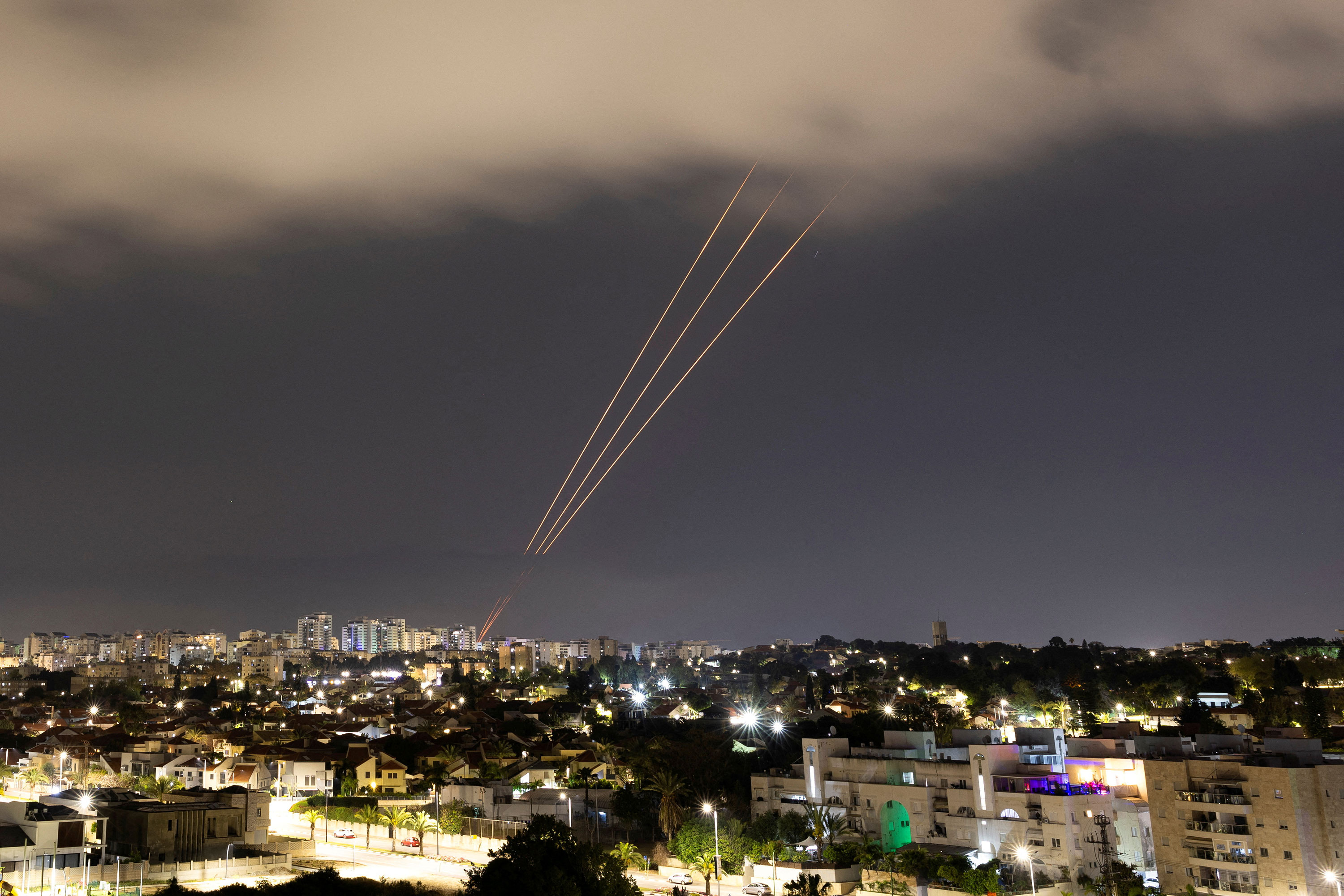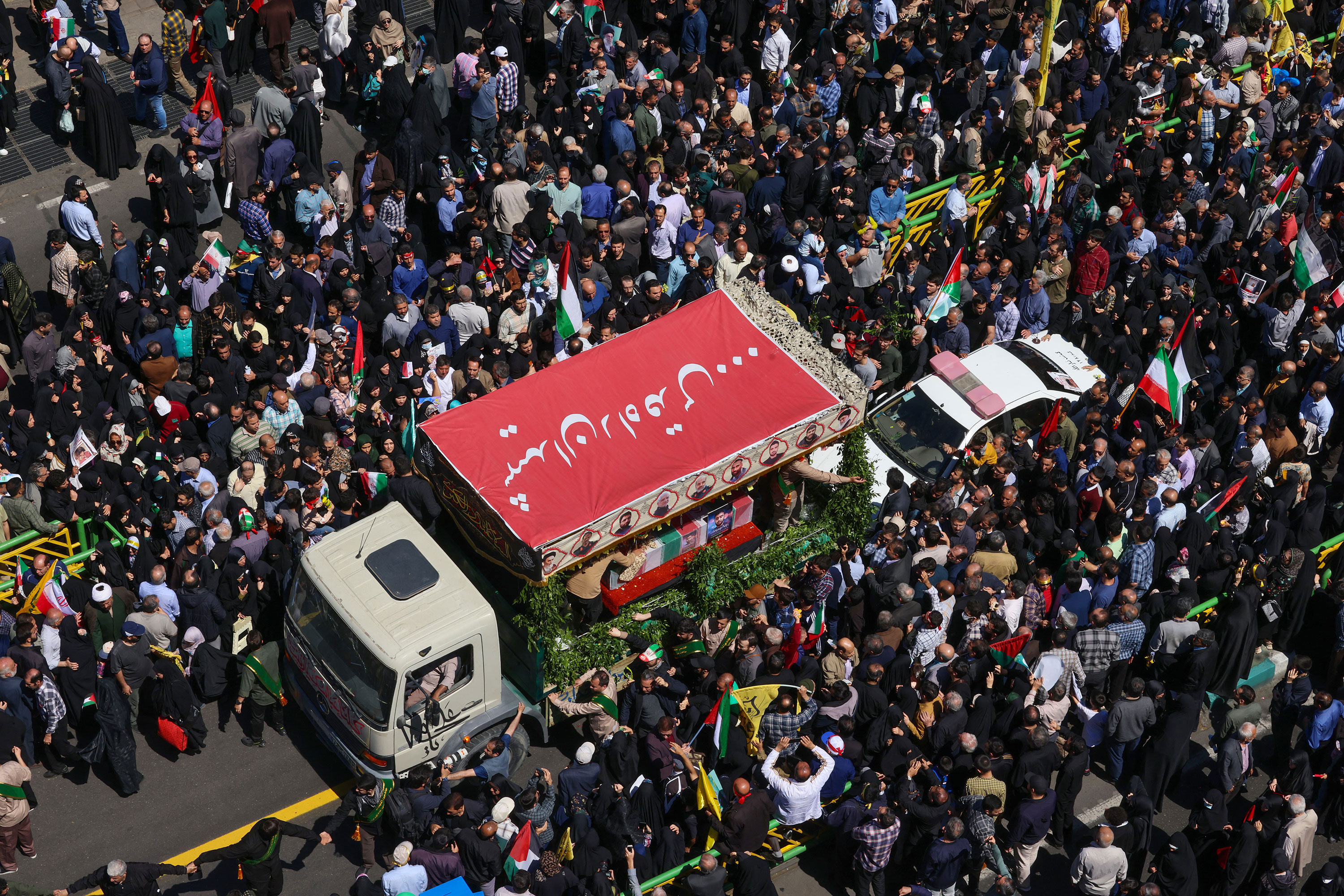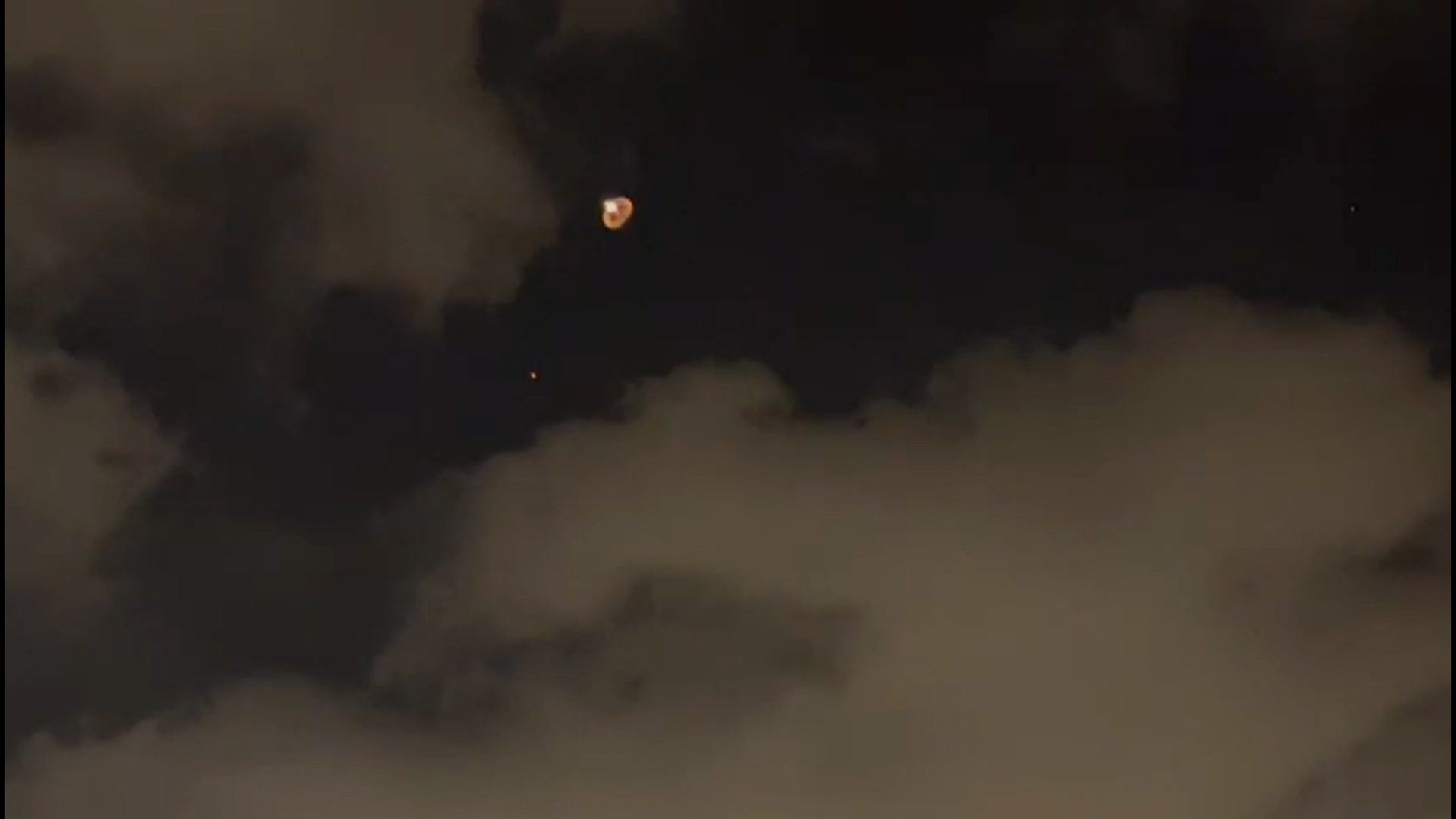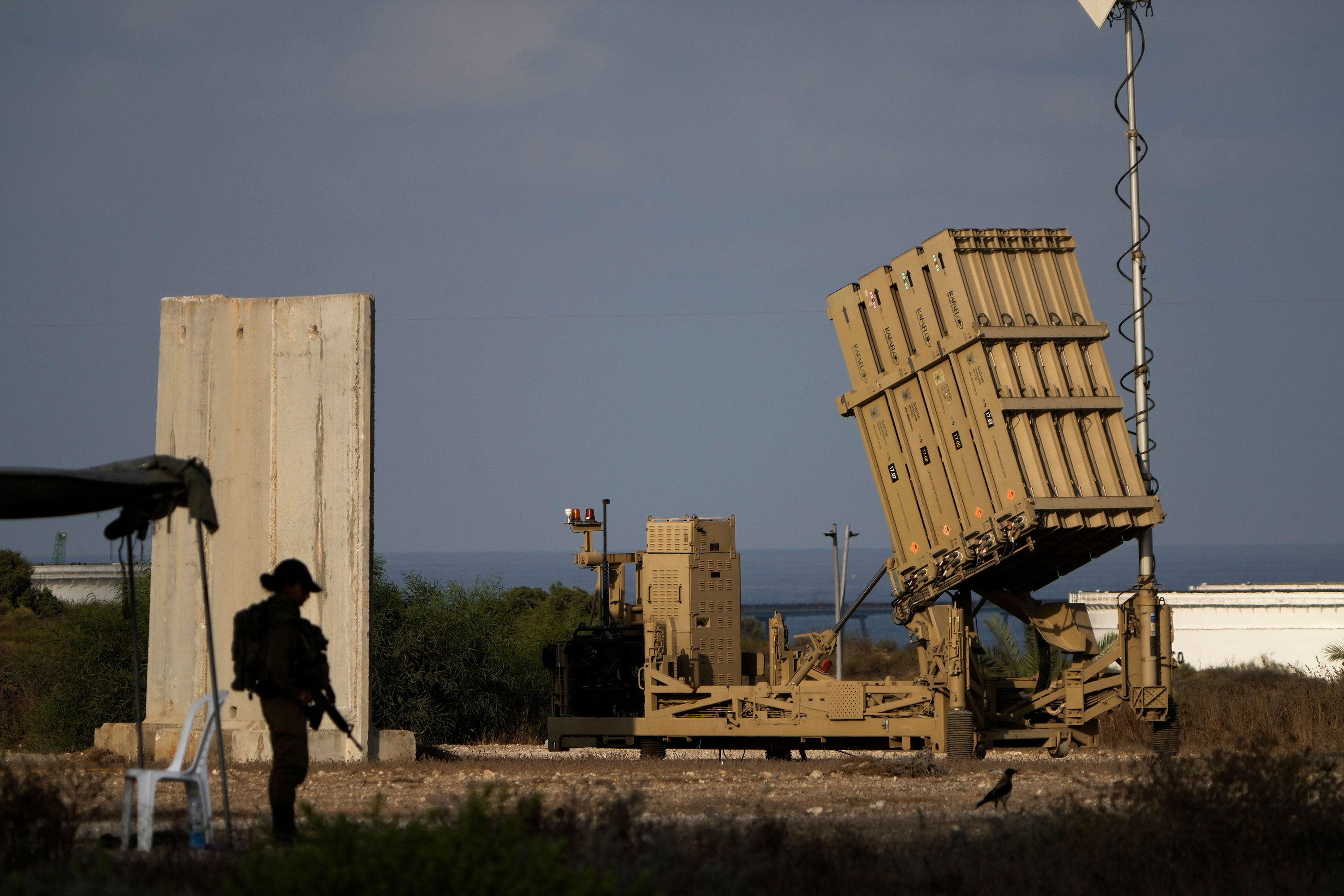
In the days after a deadly Israeli strike on the Iranian embassy complex in Syria earlier this month, the only questions were how and when — not if — Iran would respond. Tehran delivered its answer on Saturday night with an unprecedented aerial attack launched directly from Iranian soil, escalating already boiling regional tensions to new levels.
Iran's Revolutionary Guards (IRGC) announced Saturday that they had fired dozens of drones and missiles toward Israel; an Israeli official put the number of drones at more than 100. As of early Sunday, it appeared that many of the projectiles were intercepted by the Israeli and US militaries.
The launch marked the first-ever attack launched at Israel from Iranian territory. The two countries are enemy states, but neither had ever launched a direct and overt attack on the other’s soil — though Israel’s April 1 strike on Iran’s consulate in Damascus took place on what is technically considered to be sovereign Iranian territory per diplomatic convention.
For 12 days, the regime vowed revenge, with Supreme Leader Ali Khamenei appearing before a crowd wielding a rifle as he vowed to retaliate. US officials expected Iran’s response to be calibrated to avoid all-out war, but Tehran is also seeking to reassert itself as a regional force — a tightrope that it has sought to walk since the Israel-Hamas war began in October.
While the damage from Saturday night’s strikes is yet to be determined, the scale of the launch and its transnational route have already brought the region to the brink, and any misstep could have cataclysmic consequences.
Israel has already vowed to respond. “We have determined a clear principle: Whoever harms us, we will harm them,” Israeli Prime Minister Benjamin Netanyahu said Saturday night as the drones made their way toward his country.






